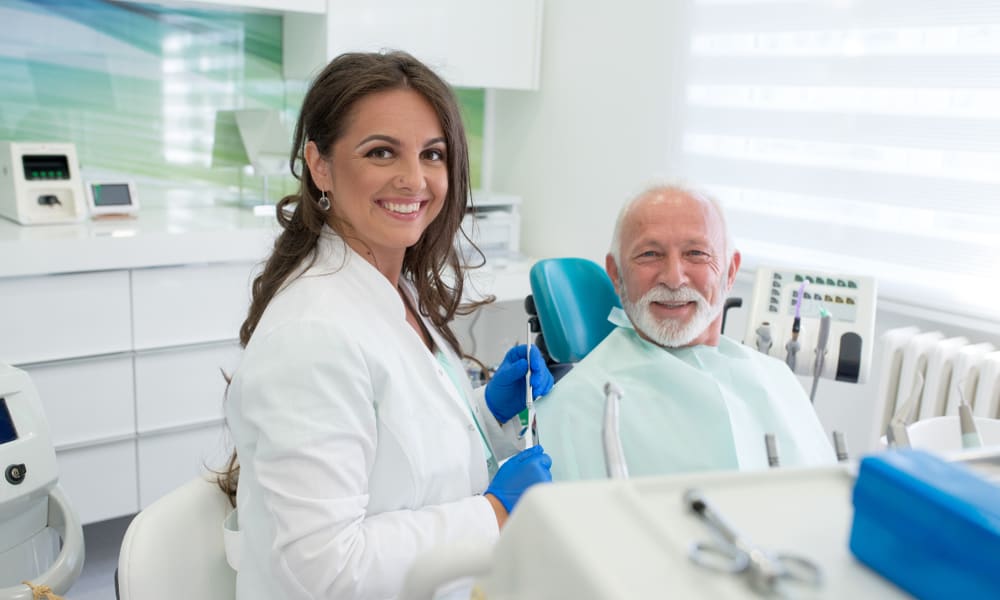Who Does and Doesn't Qualify For VA Dental Care
Understanding VA dental benefits can be complex, as eligibility varies significantly based on service connection, disability ratings, and specific circumstances. Many veterans assume they automatically qualify for comprehensive dental care through the Department of Veterans Affairs, but the reality involves specific criteria that determine who receives coverage and what services are included. This guide clarifies the requirements and helps you determine whether you meet the standards for VA dental benefits.

The Department of Veterans Affairs provides dental care to eligible veterans, but not all former service members automatically qualify for these benefits. Unlike VA medical care, dental coverage follows stricter eligibility requirements tied to service-connected conditions, disability ratings, and specific circumstances during military service. Understanding these criteria helps veterans determine their eligibility and access the care they need.
How Do You Qualify for VA Dental Benefits
Veterans can qualify for VA dental care through several pathways. The most common route involves having a service-connected dental disability or condition. If a dental issue resulted from combat injuries, service trauma, or treatment received while on active duty, you may qualify for comprehensive dental care. Veterans with a 100 percent service-connected disability rating are eligible for any needed dental care, even if their dental conditions are not service-connected. Additionally, veterans who are former prisoners of war qualify for comprehensive dental benefits regardless of their disability rating.
Other qualifying circumstances include having service-connected conditions rated at 100 percent temporarily due to hospitalization or convalescence, receiving VA care for a service-connected dental condition that is rated at zero percent, and veterans enrolled in a VA vocational rehabilitation program. Those who participated in Project SHAD or were exposed to certain toxic substances during service may also qualify for specific dental treatments related to their exposure.
VA Dental Eligibility Criteria
The VA uses a class system to determine dental eligibility, with different classes receiving varying levels of coverage. Class I includes veterans with service-connected compensable dental disabilities or conditions, who receive any necessary dental care. Class II covers veterans whose dental conditions resulted from combat wounds or service trauma, and Class III includes former prisoners of war. These three classes typically receive the most comprehensive dental coverage.
Class IV encompasses veterans with service-connected disabilities rated 100 percent or those receiving homebound or housebound benefits, making them eligible for any needed dental care. Classes IIC, IIB, and VI have more limited eligibility, often requiring specific service-connected conditions or recent discharge from active duty with dental issues that existed before separation. Veterans who do not fall into any eligible class generally cannot receive routine dental care through the VA, though they may still access emergency dental services in certain situations.
Disability ratings play a crucial role in determining eligibility. A veteran with a 70 percent service-connected disability rating without dental-specific conditions would not automatically qualify for dental benefits, while a veteran with a 100 percent rating would receive full dental coverage. The distinction emphasizes how VA dental benefits differ from general VA healthcare eligibility.
Eligibility VA Dental Care
Determining your eligibility requires reviewing your service records, disability ratings, and current health status. Veterans should gather documentation including their DD Form 214, VA disability rating letters, and any records of dental conditions noted during military service or separation examinations. The VA provides online tools and eligibility assessments to help veterans understand their status before applying for dental benefits.
Veterans who recently separated from active duty have a limited window to receive dental care for conditions that existed at discharge. Those who served on active duty for 90 days or more and apply for VA dental care within 180 days of separation may qualify for one-time dental care to address issues that were not treated before discharge. This provision helps transitioning service members address dental problems that developed during service but were not resolved before separation.
Certain veterans may qualify for dental care only for specific conditions. For example, a veteran with a service-connected jaw condition might receive treatment for that specific issue and related dental work, but not routine cleanings or care for unrelated dental problems. Understanding these limitations prevents confusion and helps veterans plan for their dental health needs.
Who Does Not Qualify for VA Dental Benefits
Many veterans do not meet the eligibility criteria for VA dental care. Those without service-connected dental disabilities, disability ratings below 100 percent without dental-specific conditions, and veterans who were not prisoners of war typically cannot access routine VA dental services. Veterans who served in the National Guard or Reserves without being called to active federal service for extended periods often find themselves ineligible for VA dental benefits.
Veterans with general discharge characterizations other than honorable may face restrictions on all VA benefits, including dental care. Administrative or bad conduct discharges can disqualify veterans from accessing VA services, though each case receives individual review. Even veterans with honorable discharges may not qualify if they do not meet the specific dental eligibility criteria based on service connection or disability ratings.
For veterans who do not qualify for VA dental benefits, alternative options exist. Many can access dental care through private insurance, state veterans programs, or community health centers that offer sliding fee scales based on income. Some VA facilities provide limited emergency dental care to veterans regardless of eligibility when acute pain or infection requires immediate attention, though this does not extend to routine or preventive care.
Applying for VA Dental Benefits
Eligible veterans can apply for dental benefits through VA Form 10-10EZ for healthcare enrollment or by contacting their local VA dental clinic directly. The application process requires documentation proving eligibility, including service records and disability ratings. Veterans already enrolled in VA healthcare may still need to establish their dental eligibility separately, as medical and dental benefits operate under different criteria.
Once approved, veterans receive care at VA dental clinics or through contracted providers in the community when VA facilities cannot accommodate their needs. Treatment plans depend on the veteran’s eligibility class, with some receiving comprehensive care and others limited to specific service-connected conditions. Understanding your eligibility class helps set realistic expectations for the scope of dental services available.
Veterans denied dental benefits can appeal the decision through the VA appeals process. Providing additional documentation, medical opinions linking dental conditions to military service, or clarifying service history can sometimes result in approval upon review. Working with a veterans service organization can help navigate the appeals process and strengthen your case for dental benefits.
Conclusion
VA dental benefits provide essential care for eligible veterans, but qualification requirements are specific and often misunderstood. Service-connected dental conditions, 100 percent disability ratings, POW status, and recent separation from active duty represent the primary pathways to eligibility. Veterans who do not meet these criteria must seek dental care through alternative sources, though emergency services may still be available through the VA in urgent situations. Understanding these requirements allows veterans to accurately assess their eligibility and plan accordingly for their dental health needs.




